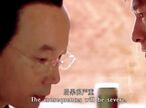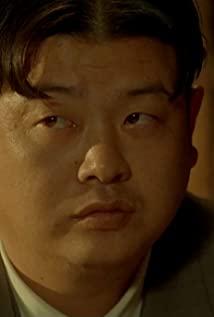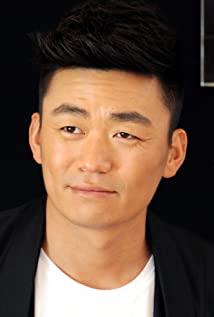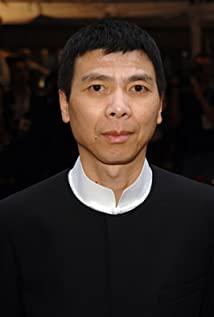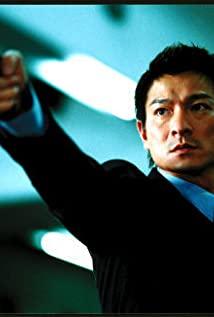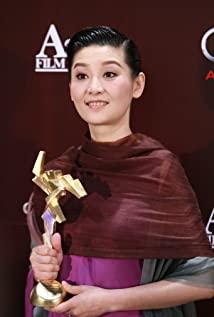I really like Feng Xiaogang's previous "Big Shot". First, I like this kind of "disaster comedy", that is, the protagonist wants to cover up another lie with one lie, and one mistake to cover up another mistake. The protagonists of "disaster comedies" are often in trouble, but they can carry the author's poignant exposure to human weakness. Moreover, "disaster comedy" requires the author to have both rich imagination and strict logical thinking, which is also a major test of his IQ. Second, the sarcasm and ridicule of "The Big Name" on the chaos of contemporary Chinese society almost reached the point of laughter and cursing. No matter what Feng Xiaogang's motives were, it seemed quite enjoyable indeed. The most important thing is that although Feng Xiaogang set You You, played by Ge You, as a kind little person who has public service advertisements in mind, he did not openly resort to moral preaching and exhortation after all.
Since "Mobile Phone", Feng Xiaogang's urge to be a pastor, or his sense of mission, seems to be more and more unstoppable. In "Mobile Phone", Feng Xiaogang has already expressed his yearning for the "plain times" of the past, for the countryside that has not yet sunk into material hedonism, and for the traditional moral norms that only exist on paper. In "A World Without Thieves", this This yearning is more intense and direct. To this end, he did not hesitate to fabricate a character as pure as a stranger who has achieved absurd levels, and even fixed the theme of the film to persuade people to do good, and publicize the big truth that evil is not the enemy of righteousness, and evil is repaid. However, when Pastor Feng really planned to incarnate into a heartbroken and upright defender, his tone and demeanor were a bit fake. I certainly can't rush into his stomach, accusing him that his original intention is not sincere or deliberately deceived, but his arguments and positions are indeed automatically dispelling his appeals and criticisms. Feng Xiaogang has been caught in a whirlpool full of internal paradoxes, just like the Chinese society he lives in.
Feng Xiaogang's praise of rural civilization is by no means a simple cognition of the style of "losing etiquette and seeking the wild". Deep down, we can vaguely glimpse the anti-intellectualism similar to "the noble are stupid and the humble are smart". argument. The moment when that argument came to a head, coincided with the unprecedented Cultural Revolution. In the past, we generally superficially understood the Cultural Revolution as a catastrophe that destroyed culture, but in fact, along with the destruction, the Cultural Revolution also had its own cultural construction. For the fifth generation headed by Chen Kaige and Zhang Yimou, as well as the generation of people of the same age as Feng Xiaogang and Jiang Wen, the various ideological trends prevailing in different periods and stages of the Cultural Revolution have profoundly affected their world outlook and outlook on life. in their unconscious.
People like Feng Xiaogang and Jiang Wen have never experienced the scary years of red before the Cultural Revolution, and they have never experienced the hardships of going to the mountains and the countryside. They are a "sunny" generation who grew up under a special background. For that era, their memories sometimes contain a kind of nostalgia and even admiration: it was the day when "all brothers in the world", it was a sincere and unrestrained youth that dared to love and hate. At the same time, another central feature of the zeitgeist was the official hype of moral idealism that dominated the limited education of teenagers. Compared with the present, the Feng Xiaogang generation who grew up in that environment can easily feel the turbulence of moral standards and the sudden chaos of social atmosphere. Although they themselves may not be willing to abide by the moral creeds and precepts of the past, this does not prevent them from looking at their surroundings with a critical eye (this criticality increases as they enter middle age where they are prone to nostalgia), so they are dissatisfied. , and then create a "return" fantasy. Feng Xiaogang's simple rural life and ethical landscape shown in "Mobile Phone" and "A World Without Thieves" are undoubtedly his pursuit. Such a tangle between pure morality/materialistic enjoyment, beautiful past/dirty reality, (Cui Jian, another of Feng Xiaogang's peers, once sang: "My ideal is there, my body is here.") Not only Feng Xiaogang , Jiang Wen first appeared in "Sunny Days" ten years ago. The encounter between the super-long Mercedes-Benz and the fool that suddenly appeared at the end of the film is a profound metaphor for the creator's mentality.
However, there are two fatal wounds in Feng Xiaogang's pure dream.
First of all, Feng Xiaogang's splendid beauty is a fiction of wishful thinking, while the harsh living conditions of contemporary Chinese rural areas and the complex conditions of farmers have all been obscured or simply ignored. At the beginning of "Mobile Phone", a lot of space was used to describe the scene of the old countryside, in order to show off the pure state of strictly guarding Yi's heart in his early years; after that, when he returned to the village in distress due to the entanglement between men and women, the relatives there remained the same. Simple and unpretentious. But in fact, the countryside is neither a peach blossom garden, nor a peasant nor a sage. The ideal country that Feng Xiaogang took for granted is as superficial and illusory as their "sunny day", without scrutiny. In addition to Feng Xiaogang, in current literary and artistic works, it is common to push villages and peasants to the moral high ground, such as sketches or songs staged at the Spring Festival Gala, which has the same function as "New Year's Eve" in Feng Xiaogang's films. This tone is completely in line with the requirements of mainstream ideology. On the one hand, it provides necessary comfort and anesthesia to the bottom of the society who bear the cost, and on the other hand, it enables the vested interests to complete the obscenity on the dual level of venting their complaints and covering up their guilt.
Secondly, Feng Xiaogang's position is quite suspicious. No matter how obsessed he is with the moral sage, he is still standing on the stage of a successful elite that symbolizes wealth and power. Its essence is closer to the common western judges and audiences in the film industry. Chinese imagination. No matter how Yan Shouyi sighed after being used by a woman, and no matter how willing Wang Bo was to fight for the fool, the sense of superiority and the sense of responsibility for saving (promoting) are obvious. This internal division is not surprising, because it is the epitome of the verge of rupture in the disparity between urban and rural areas, regions, and classes in contemporary China. At the 2006 Spring Festival Gala, the sketch "Following Your Wife to Be a Nanny" is the best example of the hierarchical differentiation in contemporary China that "foreigners are higher than Chinese urban citizens and higher than Chinese farmers". Now, not only developed countries in the West can create colonial spectacles to satisfy their curiosity and moral vanity, but in China, some "pioneers" can also practice it like a cat and a tiger. The warm and fragrant country banquet in "Mobile Phone", and the silly roots in "A World Without Thieves" believe that all people are good are all miracles created by Feng Xiaogang.
The moral beautification of the peasants and their own strong sense of superiority constitute a profound paradox. Therefore, Feng Xiaogang's films are destined to lose their sincere power. Occasionally criticism is stern and ironic. Itching across the boot. So, what is left for Feng Xiaogang to preach?
Not long after the opening of "A World Without Thieves", Wang Bo once got angry for no reason and yelled at the security guard of the villa community, "If you have money, you must be a good person." The arrangement of this plot can be described as extremely clumsy, although in the movie theater, we can imagine that it will attract a lot of emotional resonance from the audience. However, this scene provides an important help for us to gain a deeper insight into the nature of Feng Xiaogang's teaching. In today's China, are rich people good people or bad people? This is a seemingly nonsensical but meaningful and interesting question. Feng Xiaogang, one of the wealthy people, must have also felt the acuteness of this question. He is keen, but he chose the most slick explanation: that is, to please the moral vanity of the "mainstream" public, and to serve them Build a "beautiful looking" Rogue Utopia.
It must be pointed out that the "mainstream" for whom Feng Xiaogang bowed to serve is definitely not the security guard who was scolded for no reason. Starting with "Mobile Phone", Feng Xiaogang's films clearly have a tendency to cater to specific audience groups, specifically, mainly urban white-collar workers or middle-class people. In addition to envy and envy towards the wealthy, they are happy to make some sarcastic jokes, but dare not really oppose them; they have theoretical sympathy for the lack of material life at the bottom, but they are good at imagining the other party's spiritual life. self-sufficiency in order to reduce one's sense of responsibility. (Feng Xiaogang’s target audience for movies contains a serious question: in China today, who goes to the movies? Why do they go to the movies? Feng Xiaogang, Zhang Yimou, Chen Kaige and other “heavyweight directors” in the Chinese film industry are all keen on “blockbusters” This phenomenon is more worthy of attention and discussion.)
Compared with the title of artist, Feng Xiaogang is always more willing to describe himself as a "laborer" who dedicated his heart and soul to the "people", but his "people" " is clearly limited in scope. We can see that Feng Xiaogang stood in this position, put on the priest's vestments for preaching and listening to confession, and looked very pious with his heart and soul. However, the hypocrisy of this vestment is too strong, not only covering up his original ability to entertain people, but also turning his film into a botched preaching.
View more about Tian xia wu zei reviews




